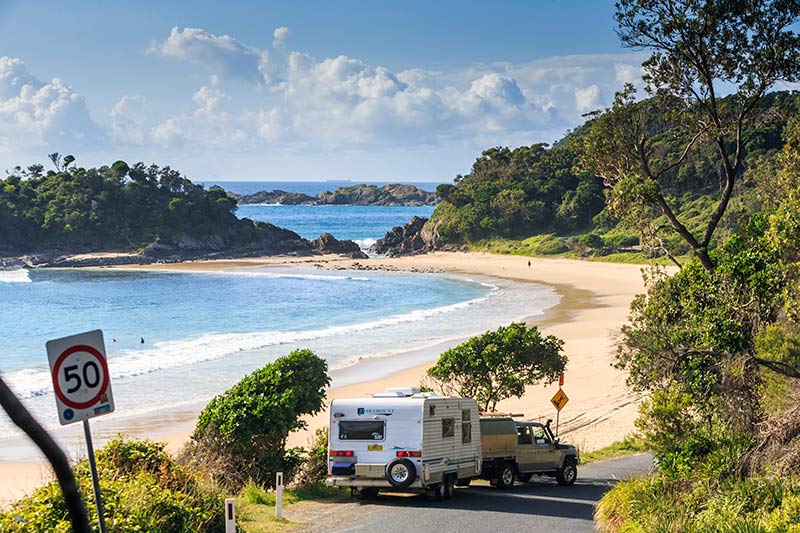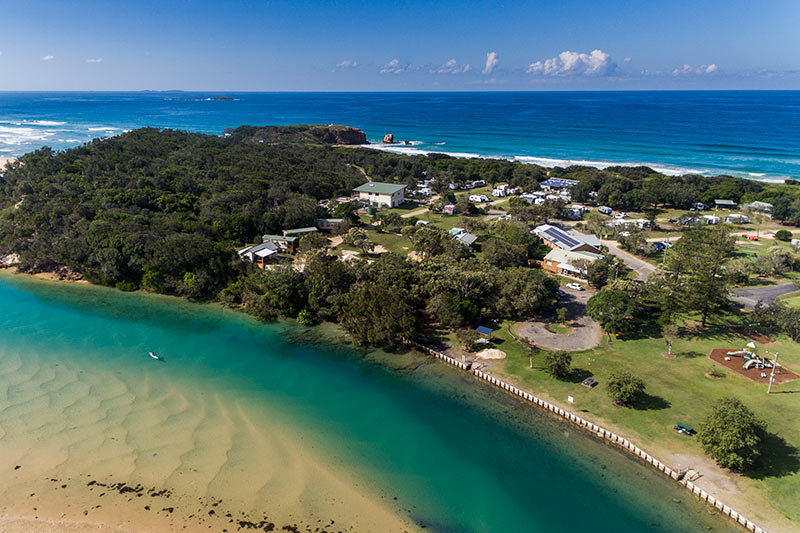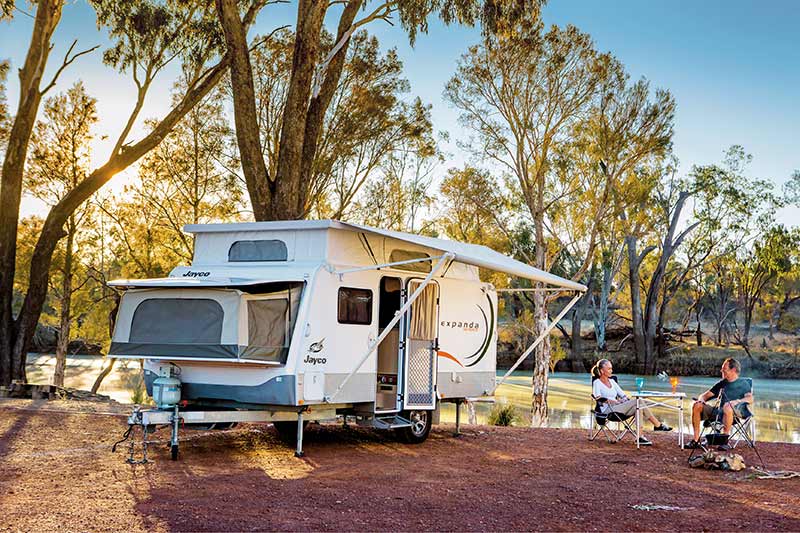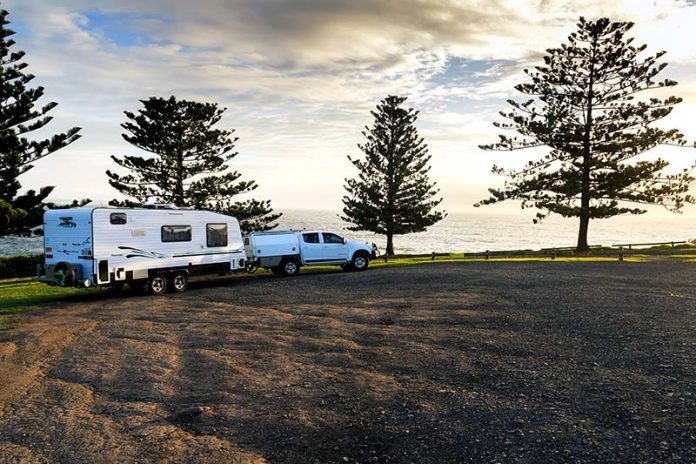Are you in the market to buy a caravan? Or are you looking to hire a caravan for your next cross-country holiday? There are plenty of caravan sellers and letting agents with legitimate offers… But unfortunately, there are many scammers and criminals who are looking to take advantage of honest people too.
The best way to avoid becoming a victim of caravan scams is to be aware of the tactics that are most commonly used to con innocent people out of their money. The golden rule to remember is: if a deal seems too good to be true, there’s a good chance it is.
Here are the most common scams to keep an eye out for when buying or hiring a caravan.
AVOIDING CARAVAN SCAMS WHEN BUYING
Online shopping is extremely popular, and many people have taken to buying caravans and RVs online. However, making major purchases like this on digital platforms can be quite risky, especially since it’s much easier for scammers to draw unwitting people in when they’re operating over the internet rather than face to face.

This means that you need to be careful and vigilant when looking to buy a caravan online, and that you need to do your homework and check the validity of each sale.
These are some of the most commonplace tactics that online scammers use to lure you in with caravan deals that seem too good to be true.
- Advertising top-tier caravans at giveaway prices. You might feel the temptation to jump at a deal that offers a high-spec, expensive caravan at a bargain price. When you call the seller to inquire about the caravan, they might tell you it is in excellent condition and has attracted plenty of interest from other potential buyers.
They may also ask for a deposit to secure the caravan without offering you the chance to see it. In many of these cases, the promised caravan doesn’t exist at all.
- Involving unspecified third parties. Some scammers may claim to be out of town and unable to meet with you, but promise to use the advertising site’s middleman service instead. You might receive a believable call or message from the website and pay for a caravan that you will never receive. Be warned. No reputable sites actually offer middleman services like these!
- Requesting upfront payments. Other criminals may request Moneygram and Western Union transfers or upfront payments, saying that they are tired of people wasting their time. Once you make the transfer, the ad listing may quickly disappear. It’s a good rule of thumb to avoid paying money for a caravan that you haven’t seen in person.
- Sending phishing links. Another popular scam format involves being sent caravan listing links via email. If you receive such a link, rather access the website by manually typing its URL into your browser search bar. The email link could well be a phishing attempt. If you’ve made a payment for a caravan or RV online, we recommend watching your bank account for unrecognisable transactions. If you notice any suspicious deductions, contact your bank immediately.
AVOIDING HOLIDAY CARAVAN SCAMS
Are you planning a fun-filled getaway soon? Organising a trip-ready holiday caravan can be fraught with hazards, too. One of the most common caravan scams involves an individual advertising a caravan on Gumtree, Craigslist, Facebook, or another free advertising website. The holiday caravan looks like the perfect accommodation for your break, so you message to enquire about rental prices and availability. The owner might then direct message you or ask for your email address so that they can respond.

Once you have established that the caravan will be available on your chosen dates, you will probably be asked for a deposit to secure it, and a possible down payment on insurance fees. Many scammers request payments through PayPal and may ask you to send the money through the Gift or Friends and Family facilities to save on transaction fees. This is a big red flag!
If you gift money to a friend or family member on PayPal, you won’t pay any commission. However, if you discover that you have been scammed, you will have lost PayPal’s protection and your deposit as you didn’t list your payment as a purchase. Your caravan might not exist at all, and if it does, it might be nowhere near as pleasant as the one advertised to you.
You may also travel to your holiday park to be informed by the ‘owner’ that your caravan has been double-booked – or to find out that there wasn’t a caravan there to begin with.
The best ways to avoid being victimised by a holiday caravan scam are:
- Be sure to book your holidays through trusted caravan rental portals or authorised holiday park letting agents;
- Ask advertisers for proof of ownership and the exact location of the holiday park in which the caravan is stored before paying any deposits or fees. Request that the owner allows you to call the park where the caravan is based. Then, call them to verify that the caravan exists and is owned by the individual that you have been dealing with;
- Pay your deposit via secure bank transfer. If you have no option but to pay using PayPal, make the payment as a purchase and pay over the commission fees. The protection you’ll receive is well worth the extra money spent; and
- If you’re going to tow a caravan and need to update your car’s insurance cover, organise this yourself. Don’t let a third party act on your behalf unless they’re a trusted entity that you’re renting or buying from. Swindlers will find any opportunity to squeeze extra cash out of you.
DON’T BE A VICTIM
Caravan scams can come in a variety of different forms. Scammers may target you when attempting to sell you a caravan online, or they might try to swindle you out of deposits, added insurance and holiday rental fees when you try to book a caravan for your next holiday trip.

It’s a good idea to be cautious whenever you deal with the supposed owner or seller of a caravan. This is especially true for a deal that simply seems too good to be true, like a luxurious caravan being rented out at minimal prices during peak season, or a top of the line caravan that’s being sold for significantly less than what it’s worth.
Ask plenty of questions and verify the information you receive before you hand over any of your hard-earned cash. A reputable seller or letting agent will have no problem proving to you that their offer is legitimate.






